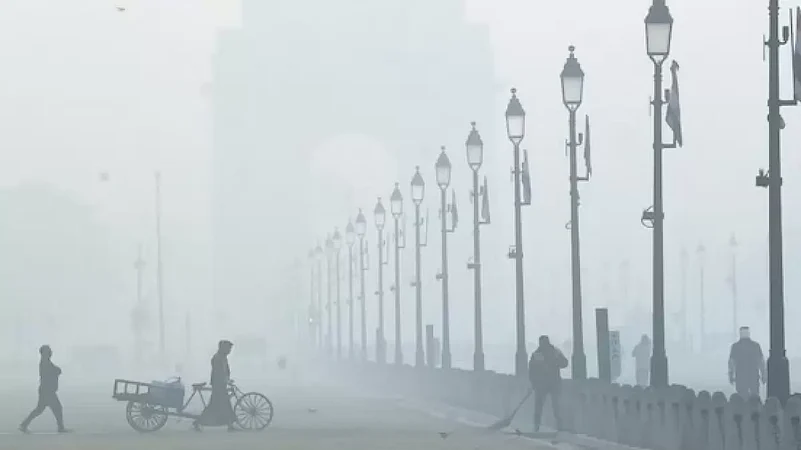As dense fog continues to shroud the national capital and adjacent regions, Delhi on Friday morning experienced visibility coming down to zero metres which in turn severely impacted the flight and train movements. On Friday, Delhi also witnessed the coldest day of the season with the lowest minimum temperature of 3.8 degrees Celsius, while the maximum temperature was 18.1 degrees Celsius, two notches below normal.
Owing to the dense fog blanket, at the Indira Gandhi International Airport visibility was zero, and as per the Met department, no improvement was expected in the next two hours. As a result, the arrival and departure of flights were delayed by one to four hours while 23 Delhi-bound trains were delayed by up to six hours.
In light of the prevailing weather conditions, Delhi Airport issued an advisory to passengers, urging them to contact their concerned airlines for updated flight information.
Cold-day conditions and fog to prevail in North India
According to the India Meteorological Department (IMD), no sign of abatement of the piercing cold-day conditions has been received in the northern, eastern, and northeastern parts of the country.
Moreover, dense to very dense fog conditions are very likely to prevail for a few hours in the morning in some parts of Punjab and isolated pockets in Haryana and Chandigarh between January 12 to January 16, according to the IMD. Similar predictions have been made for some parts of East Uttar Pradesh and in isolated pockets over West Uttar Pradesh on January 12 and 13.
According to the IMD, dense fog conditions were possible in the morning in isolated pockets of Gangetic West Bengal, Odisha and Jammu division on January 12, over Himachal Pradesh, Uttarakhand, Bihar, Sub-Himalayan West Bengal, Sikkim, north Madhya Pradesh on January 12 and 13, and Assam, Meghalaya, Mizoram, and Tripura between January 12 to 16.
Rainfall predicted in Western Himalayas
Amid the biting cold weather in the northern region of the country, IMD predicted the presence of a fresh western disturbance that will affect the Western Himalayan Region from January 16 including isolated places in Jammu-Kashmir-Ladakh-Gilgit-Baltistan-Muzaffarabad, Himachal Pradesh and Uttarakhand on January 16 and 17.


























